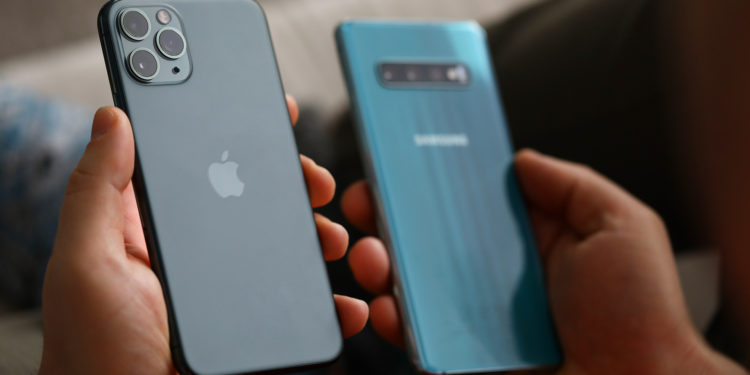Both Google and Apple collect data from their users on their respective mobile operating systems, even when they just visit the settings page or insert a SIM card. But a new study claims that Android collects 20x more data from users compared to iOS.
A study by Douglas Leith at Trinity College, via Ars Technica reported, states that while both operating systems regularly collect data from their users, Android significantly exceeds the amount collected compared to Apple's iOS. Specifically, Leith claims that Android, for example, sends about 1MB of user data back to Google when the device starts up, while iOS only transfers about 42KB. When idle, Android sends about 1MB of user data to Google every 12 hours, while Apple only receives about 52KB during the same period.
Data based on an older iOS version
Where Android stands out, Leith said, is the amount of data it collects. At startup, an Android device sends about 1MB of data to Google while iOS sends about 42KB to Apple. When idle, Android sends about 1MB of data to Google every 12 hours while iOS sends about 52KB to Apple over the same period. In the U.S. alone, Android collectively collects about 1.3TB of data every 12 hours. Over the same period, iOS collects about 5.8GB.
While the research clearly shows that Android collects more data from users, there are significant caveats. Leith explains that he used a jailbroken iPhone 8 running iOS 13.6.1 for the study, meaning the data is based on a version of iOS that most iPhone and iPad users are no longer currently using. On Android, Leith used a Google Pixel 2 running Android 10, released last year. Google itself contradicts the study. The company issued a statement saying:
Google: “This study largely outlines how smartphones work”
We identified flaws in the researcher's methodology for measuring data volume and disagree with the study's claims that an Android device collects 20 times more data than an iPhone. Our research shows these results are off by an order of magnitude and we shared our methodological concerns with the researcher prior to publication. This study broadly outlines how smartphones work. Modern cars regularly send basic data about vehicle components, their safety status, and service schedules to the automaker, and mobile phones work in a very similar way. This report details these communications, which help ensure that iOS or Android software is up to date, services are working as intended, and the phone is running securely and efficiently.
Cupertino has also spoken out on the matter. Apple told Ars Technica that it offers “transparency and control over the personal information it collects” and that the study “gets things wrong.” If you want to learn more about the study, you can read the full article PDF here. (Photo by HannaKuprevich / Bigstockphoto)





